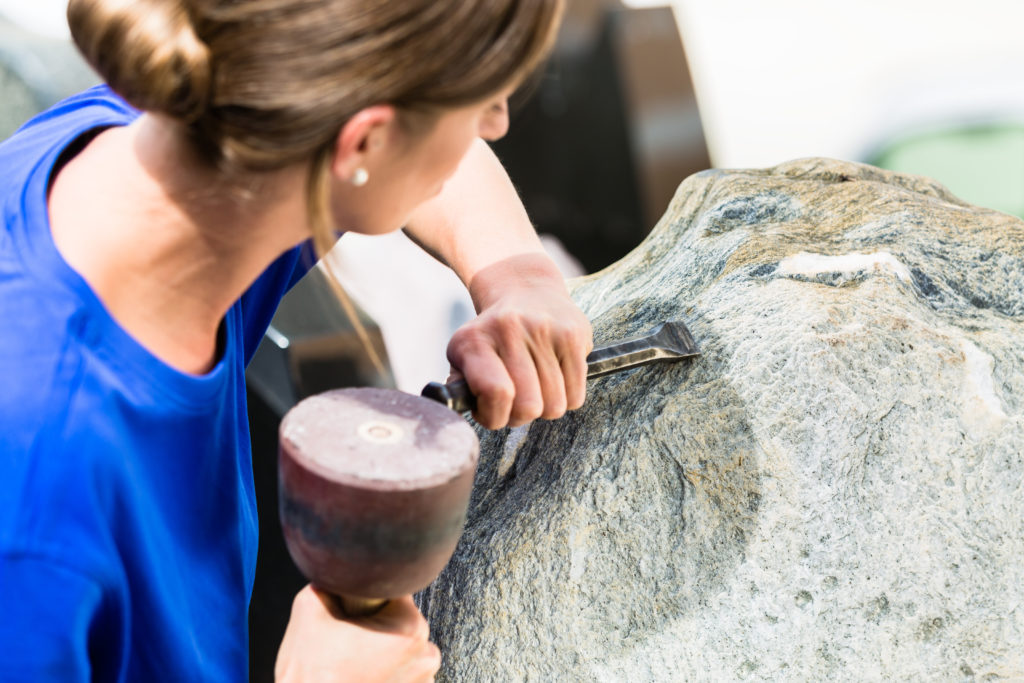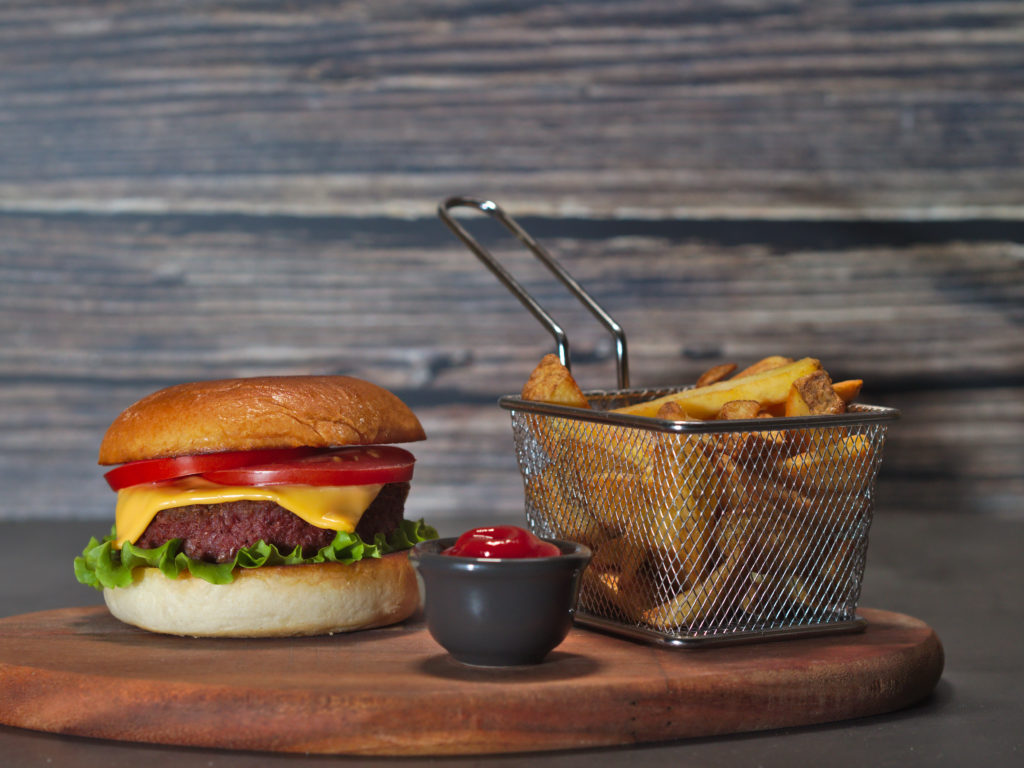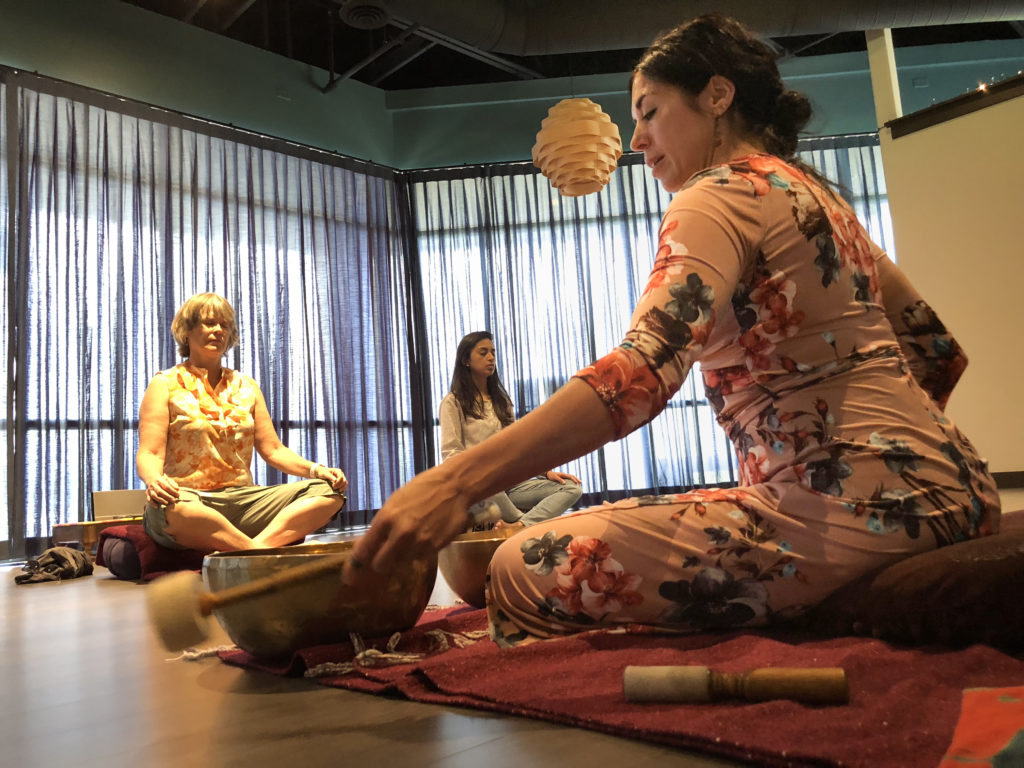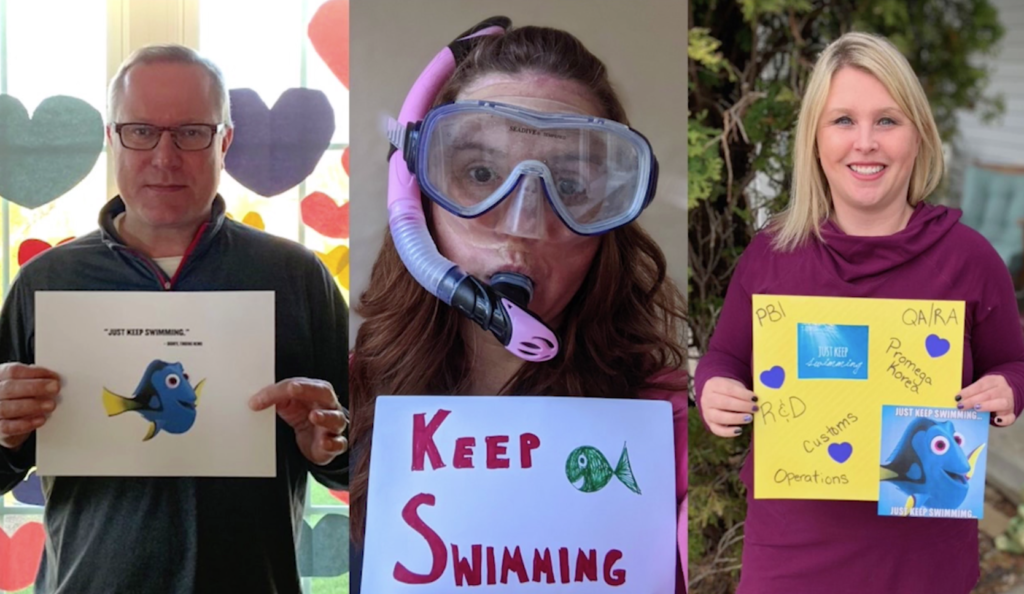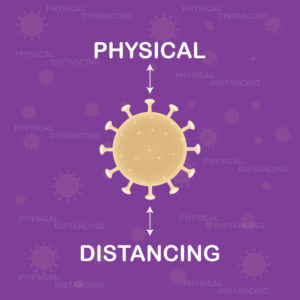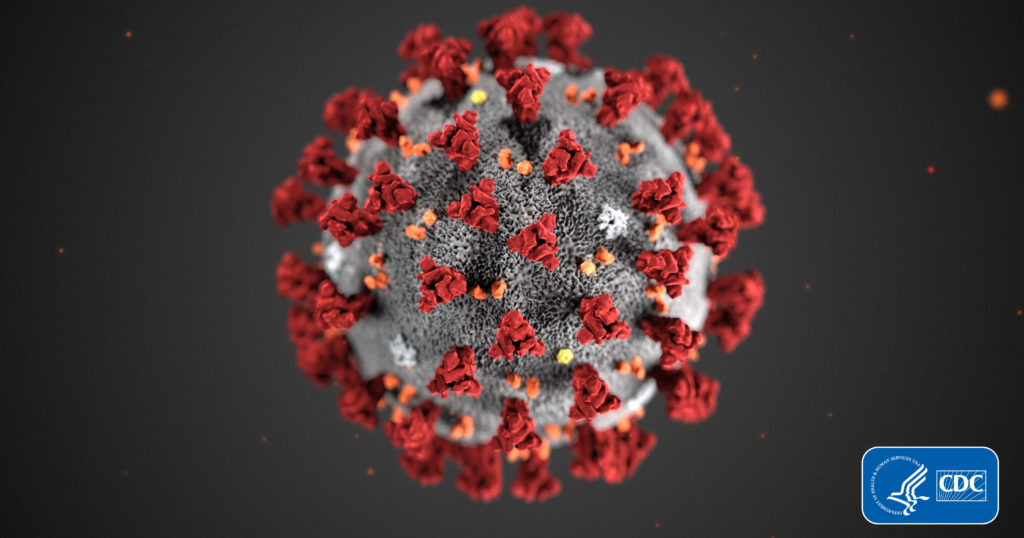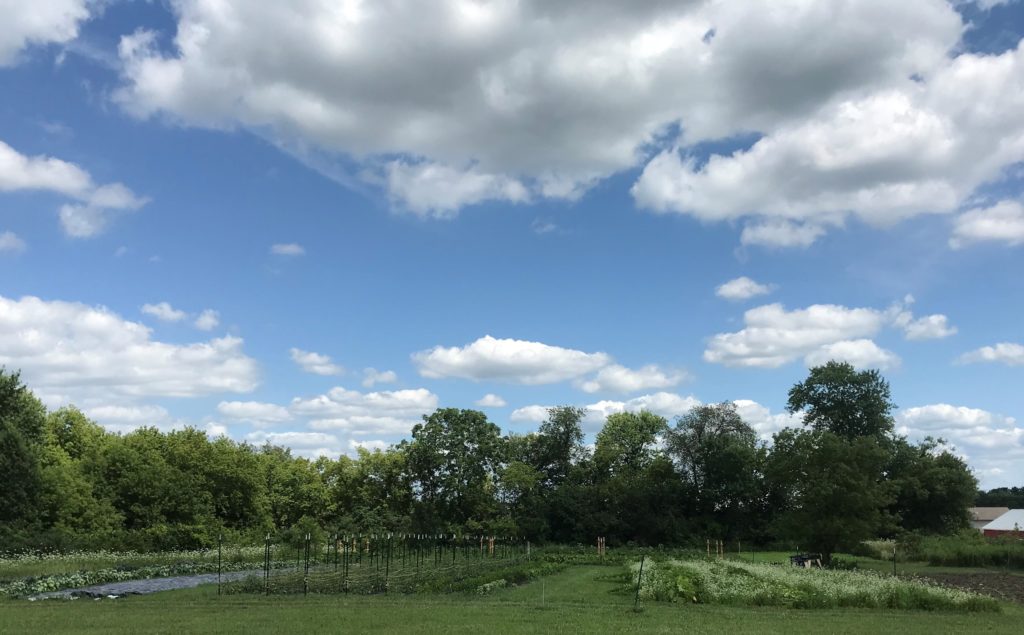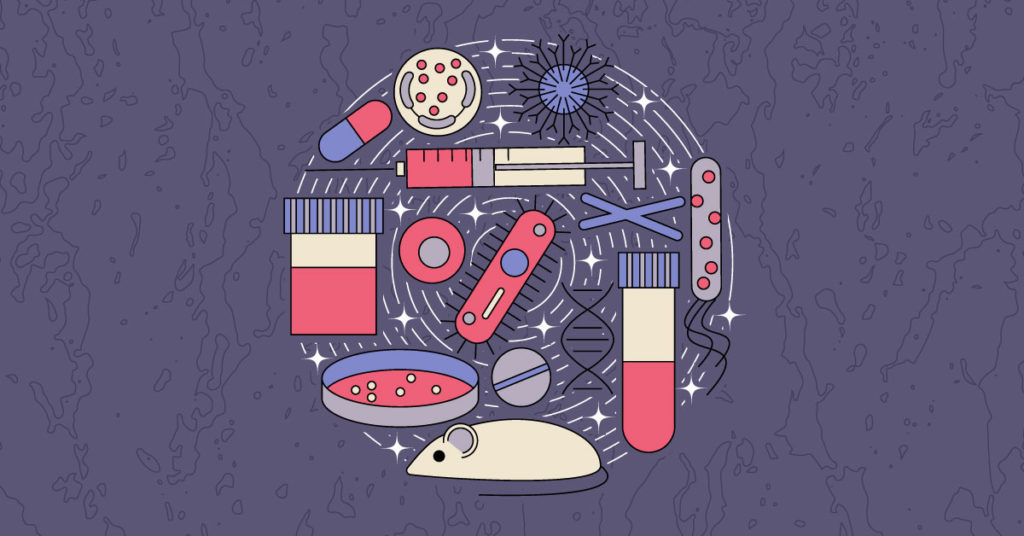Today’s blog is written by guest blogger Karen Stakun, Global Brand Manager at Promega.
Wise words from a forgetful blue fish are uniting Promega employees during these trying days. Initiated by our VP of Operations as a rallying call to employees and reinforced through a kind gesture from the Hollywood writer and director who dreamed up the fish, I invite you to join Promega as we “Just Keep Swimming.”
Those words were uttered by Dory, a blue tang with short-term memory loss, in the 2003 animated movie Finding Nemo. Now a classic, it tells the story of Marlin, an overprotective clownfish, who searches the ocean for his missing son Nemo. Dory is his sometimes-unwelcome companion. Desperate to find his son, Marlin grows exhausted and begins to feel defeated, but Dory will not let him give up. Her motivation is simple yet potent. “Just Keep Swimming.”
Setting the Scene
As COVID-19 was emerging in China, Promega began scaling up manufacturing in January to meet the growing global need for testing products. As epidemic became pandemic, and demand quickly became unprecedented, we moved swiftly to increase capacity and add more shifts at our Madison manufacturing facilities, all while ensuring the safety of our employees.
All of this takes dedicated people, especially those on our operations team, working long hours in an atmosphere of global uncertainty. Dedication is in abundance at Promega, as every employee feels a deep commitment to humanity’s struggle against this disease. However, Chuck York, our VP of Operations, says he began seeing the team struggle with the never-ending increases in demand. Despite record product totals, it could be demoralizing for a group that prides itself on always being able to deliver what customers need.
That’s when Chuck recalled one of his family’s favorite movies. “I love the never-give-up aspect of Finding Nemo and in particular the net scene.” Toward the end of the movie, Dory and several other fish find themselves caught in a fishing net. With Nemo’s help, the fish realize they can turn Dory’s mantra into action. They keep swimming together in the same direction and break free of the net.
“I wanted the team to focus on what we could control, doing all we can each day to keep product flowing. And we were and are doing an outstanding job of that. I also hoped to lighten the mood and bring a smile to peoples’ faces. Our ‘net’ is the ever surging COVID-19 demand, but eventually we will overcome if we just keep swimming.”
Continue reading “Just Keep Swimming: How the Wisdom of a Blue Cartoon Fish Can Inspire Us Amid COVID-19” Like this:
Like Loading...
